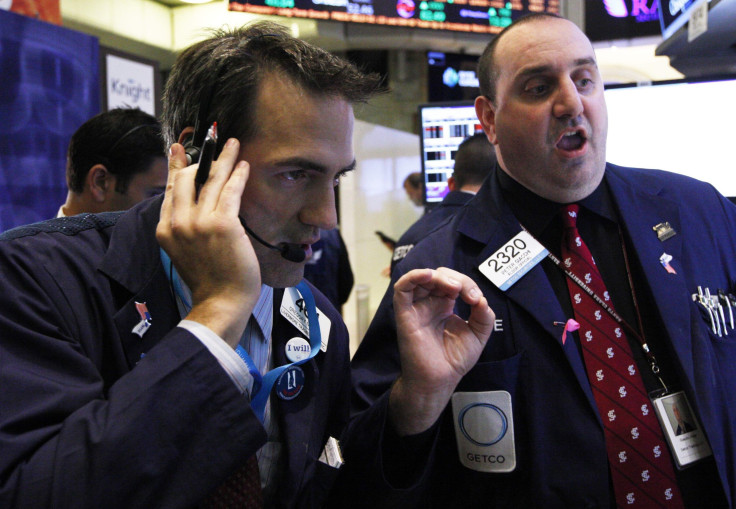Stock Markets Around the Globe, Eurodollar Rallying on Anonoymous Rumors of Peripheral Rescue

A nosebleed-inducing spike in the euro-to-dollar exchange rate has been driving a monster rally in risky assets for the past two days, with stock exchanges in Europe seeing the strongest gains in months and the U.S. equity markets approaching all-time highs.
But the market run-up is seen as a very delicate one, mainly kept afloat as traders buy on the rumors official action might be forthcoming to help alleviate the sovereign debt and financial crisis in Europe.
From levels around $1.29 per euro at the beginning of the week, the Eurodollar rate has soared over 1 percent in three days, recently going for $1.311 and solidifying the choppy upward drive seen by the currency since the beginning of the month.
As is regularly the case, the euro’s rising momentum has been a signal for market-makers to dive into equities and other risky assets, unleashing a flood of cash into the markets that has metaphorically lifted all boats. In two sessions, the Spanish IBEX 35 has gone up by 3.77 percent. The French CAC 40 benchmark is up 3.27 percent while the similar German composite, the DAX, is up 1.58 percent. The measure of the most important Italian exchange, the Milan Bourse, is up 2.53.
In the U.S., the S&P 500 Index of stocks was up a more modest 1.85 percent, but placed itself within a session’s gain of all-time highs.
The gains began on Monday morning after German Finance Minister Wolfgang Schaueble coined a new word, ‘Staatsbankrott,’ to describe a situation he said European leaders would not allow Greece to fall into.
“It will not happen that there will be a ‘Staatsbankrott’ in Greece,” Schaeuble said in English at a forum in Singapore, according to Bloomberg, adding that there wasn’t “any sense to speculate on Greece leaving the euro.” As with blanket statements by other European leaders earlier in the year that the euro would not be allowed to fail, the words were taken as a sign that Germany would do whatever it took to rescue the collapsing peripheral economies of Europe. It counteracted earlier statements from the Swedish Finance Minister, Anders Borg, that a Greek exit was imminent and “everyone already understands which way the wind is blowing.”
Schauble’s words, uttered before the European markets opened Monday, were further followed by rumors that Greek bondholders were about to be given a European Union-sanctioned bailout, something which sent Greek borrowing costs to 2012 lows.
Rumors on Greece were not even cold yet when a fresh story about another peripheral European economy was about to be saved started coming out. In this case, the Financial Times reported early on Tuesday that Spain was about to officially ask for its much-expected European rescue, the absence of which has been holding back market optimism, as the ministry of the economy in that country was “comfortable making a request for a credit line only in order to satisfy the conditions of the ECB to begin buying bonds.”
That second bit of anonymous news truly sent markets soaring, especially after Bloomberg News reported unnamed German lawmakers as saying they were ready to stand behind a Spanish bailout.
The effect of the news surprised some marketwatchers, who mainly saw the latest developments as further anonymous posturing among the leaders of Europe.
Analysts with Rabobank, for example, noted the whole affair was “a political face-saving exercise.”
“By putting the ball firmly in the court of its European peers the [Spanish] govt can perhaps hope to have its cake and eat it – i.e. only request aid when forced to do so but with the necessary market pressures being the result of core politician’s unwillingness rather than that of Spain itself,” analysts wrote in a note.
The strength of the rally also came in spite of news shortly after the European markets closed Tuesday that the negotiations between the Greek government and the troika of international organizations that need to give the go-ahead before that country receives the next tranche of its bailout were suspended after “disagreement on many issues,” according to Reuters.
Further developments from Europe are likely to dominate the financial news cycle later in the week, with a Spanish bond auction and a European Union leaders’ summit set for Friday.
© Copyright IBTimes 2024. All rights reserved.











